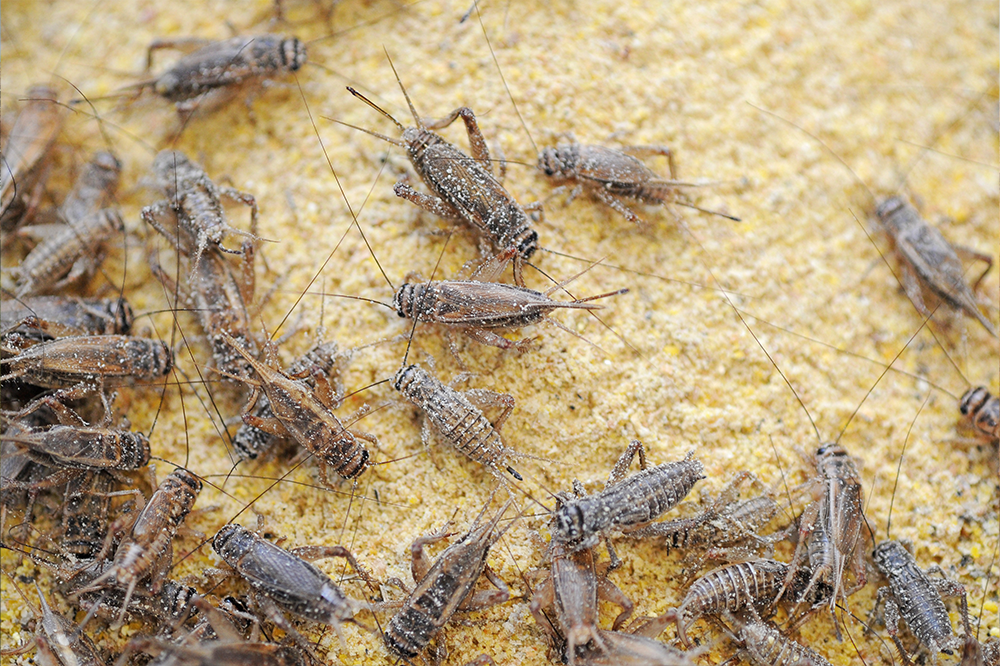2024 has been an eventful year for alternative proteins, a category that includes plant-based meat alternatives, products made using precision fermentation techniques, insect protein and cell-based or cultivated meat products.
Although some of the commercial lustre has fallen off the UK plant-based meat alternatives market this year amid a series of high profile administrations and restructures, the foundations for future market growth continue to be strengthened. That was a key takeaway from this week’s Westminster Food & Nutrition Forum in which experts considered next steps for policy on novel foods and alternative proteins in the UK.
The regulatory landscape for bringing alternative proteins to market, both as human and animal feed, remains challenging. Although Entocycle, a build partner for large scale insect facilities, is a UK-based company, restrictive UK regulations mean that none of the major insect projects the business has carried out to-date have been in the UK, explained Entocycle’s UK growth officer James Millar. These includes restrictions on feeding food waste to insectsand feeding insect protein to pigs and chickens, despite it being part of their natural diet.
There are signs the UK government aspires to break free from the EU’s novel foods regime, characterised by its time-consuming and complex approvals process, and create a new, more streamlined system in order to support home-grown innovation and attract inward investment. “We’re starting to see some action from the Food Standards Agency (FSA) in terms of the reforms that they want to make,” said Robert Jappie, partner at law firm Fieldfisher. He noted how, at September’s board meeting, the FSA discussed a proposal to change the approvals process for novel foods so that it doesn’t require a statutory instrument to be laid down before a product can be placed on the market. Instead, ministerial approval will be sufficient, which is expected to cut six months from the process.
The FSA, in collaboration with Food Standards Scotland, has also been awarded £1.6m in government funding to launch a ‘sandbox programme’ specifically for cell-cultivated products. The two year collaborative project with businesses and experts in the field aims to generate evidence that will allow regulators to address some of the challenges in bringing cultivated products to market and better guide companies on how to make products in a safe way and demonstrate evidence of safety. Applications to be part of the programme have recently closed and successful partners will be announced in the New Year.
Linus Pardoe, senior UK policy manager at Good Food Institute Europe, explained how the UK is now the second highest national funder in Europe for alternative proteins, behind only Denmark, having invested close to €100m (£83m). That includes a new £35m National Alternative Protein Innovation Centre, which was established in August and is co-funded by UKRI Biotechnology and Biological Sciences Research Council, Innovate UK and a host of academic partners. The centre will be responsible for fostering innovation across a variety of protein sources, from plant-based proteins and lab-grown meats to protein-rich algae.
Pardoe noted how across the UK there are now scientists and industry working together right the way through from discovery science to the innovation challenges that are impacting the alternative proteins industry. One such challenge relates to infrastructure. “We’re in a position where, if you want to scale your processes particularly as a start up, you are looking at an environment in which you either need to purchase very, very expensive capital equipment or go to contract facilities that tend to be pharmaceutical grade in their practices and facilities and equipment. Both of those are extremely expensive, potentially prohibitively so for small start-ups,” Pardoe explained.
Richard McIlwain, chief executive of The Vegetarian Society, also expressed concern over the lack of a national plan for alternative proteins. “If you really want to move at pace and give direction to a range of businesses across the whole value chain, having government on board, signalling direction and giving timelines I think is a really important part of the process,” he said.
It’s important too that alternative protein innovation is cognisant of people’s dietary preferences, said Professor Monique Raats, co-director at the Institute for Sustainability at the University of Surrey. She cited a consumer survey by the FSA showing that a far greater proportion of respondents said they were willing to try plant-based alternatives to meat than they were cultivated meat products or insects. “We need to have the development of a public dialogue around the use of these foods to really ensure that they come on to market in the right sort of way,” she said.
Keeping with the theme of novel foods, this week’s other stories include news of a prize-winning fish alternative made from seaweed; the approval of new EU packaging rules including binding reuse targets; and a warning from campaigners over the dangers caused by an oversupply of sugar.
The Friday Digest will return on January 10th preceded by Footprint Premium on January 6th and Footprint Analysis on January 8th.
Merry Christmas!








